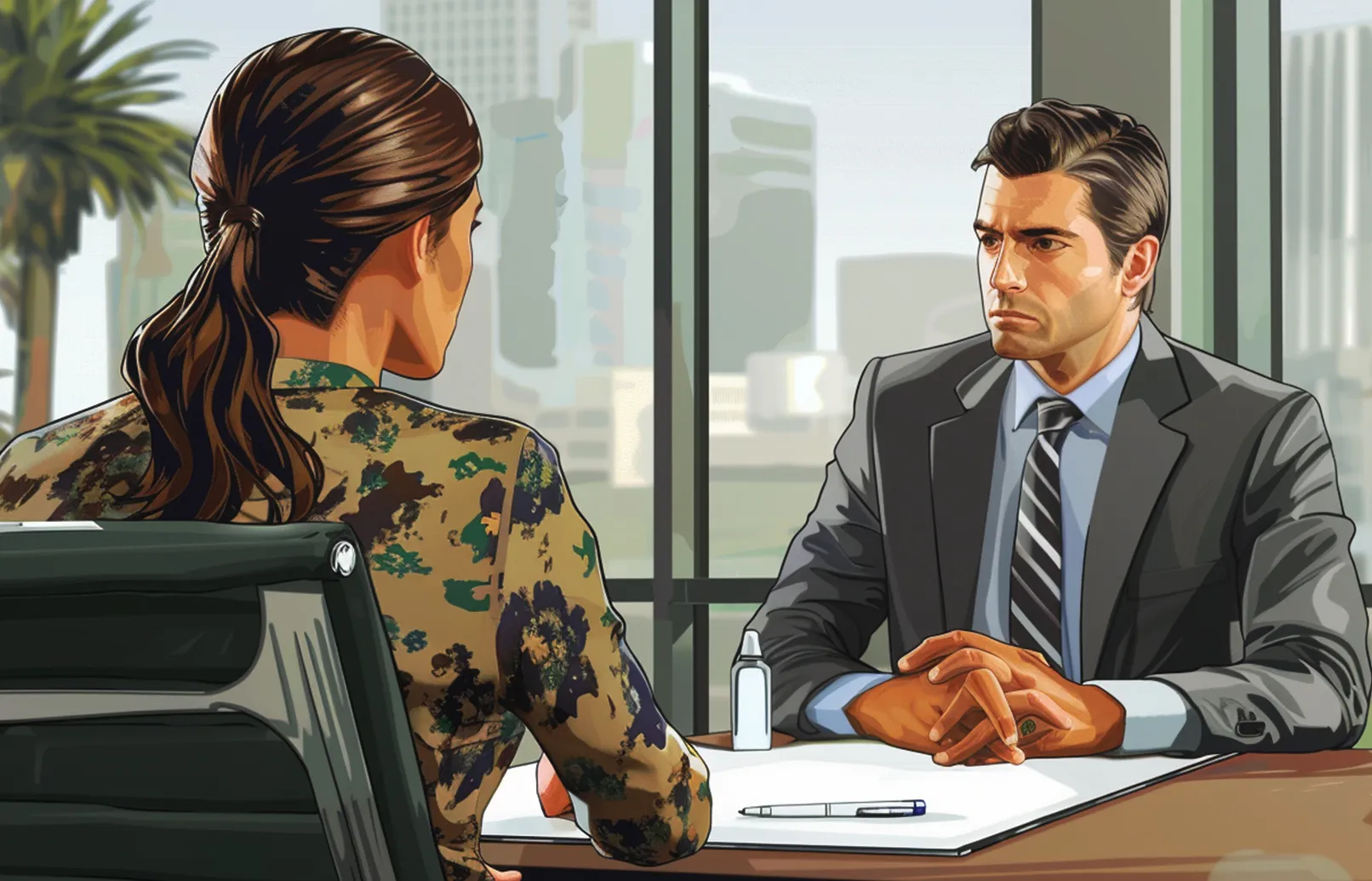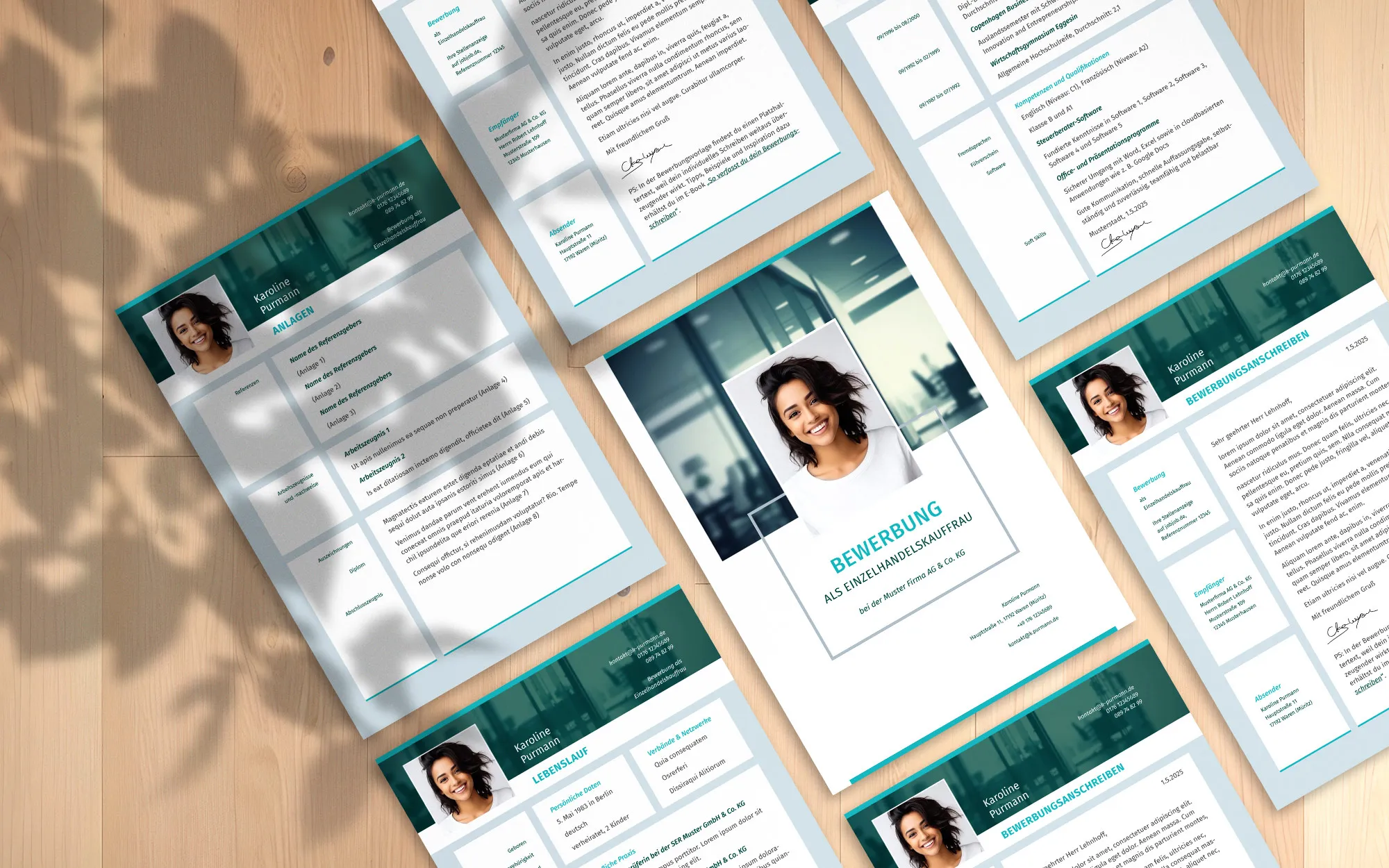10 questions about personality in a job interview
A job interview is not just an opportunity to convince the recruiter of your professional skills and experience. It's also an opportunity to make a good personal impression. Employers often ask questions about your personality to find out if you are a good fit for the team and the company culture.

Even though some of these questions may seem unrelated to the job, they give valuable insight into how you behave, communicate and solve problems. Remember that there is no right or wrong when it comes to personality questions. The important thing is that you are sincere, identifiable, self-confident and enthusiastic.
10 frequently asked questions about personality in a job interview
During the interview, personality questions serve the function of determining whether an applicant is a good fit for the company culture. They help the employer assess not only professional skills, but also personal traits that can impact workplace interactions and the ability to fit into a team. Below I have compiled 10 typical personality questions that are often asked in job interviews. You will also receive recommendations on how best to answer them.
These answers will show that you are reflective, adaptive and team-oriented, which will help you make a positive impression.
1. how would you describe yourself?
Background: This question aims to assess your self-assessment and your ability to self-reflect. So stay honest and present yourself as you are.
Sample answer: I would describe myself as disciplined, willing to learn and team-oriented. I am someone who likes to take responsibility and is constantly looking for ways to improve and new opportunities to grow.
2. why do you want to change companies?
Background: The employer wants to understand your motivation and reasons for wanting to change. You should not talk about how bad it was in your previous job, because in this case the recruiter knows that negative things will be said about their company the next time you change jobs.
Example answer: I see the new job as an opportunity to develop myself further and use previously unused knowledge and skills. Your company offers exciting projects and a culture of innovation that really appeals to me.
3. have you ever had to make a difficult decision and how did you deal with it?
Background: This question tests your decision making and problem solving skills. The answer to this question should show you as a person who does not decide spontaneously and impulsively, but thinks through each step carefully. If you have had such an experience, tell about it. If not, describe your approach in terms of a situation analysis and evaluation of the pros and cons as well as the path to decision-making.
Sample answer: Yes, in my last project I had to decide whether we should use an expensive technology or choose a cheaper alternative. I did a cost-benefit analysis and chose the cheaper option, which ultimately turned out to be the right choice.
4. tell us about your biggest failure?
Background: The employer wants to see how you deal with setbacks and learn from them. So the answer to this question is not so much about the failure itself, but about how you overcame it. It's important that you don't turn your story into a Hollywood blockbuster. It's better to talk about the lessons you've learned from the situation and the precautions you've taken to avoid a repeat. The employer should understand that you have learned from your mistakes.
Sample answer: My biggest failure was a project that was not completed on time because important features were not ready for use. I learned from this to prioritize better and to improve communication within the team. If I had brought prototypes into the test phase early on, we would have tackled the important functions earlier in development and the beta phase would have been a success, even if not every small feature had been available yet.
5. what is your attitude to criticism?
Background: This question is designed to show how you deal with feedback. No one likes to have someone on their team who reacts to every comment or piece of advice personally or with anger or sadness. It is important that you make it clear that criticism has less to do with you as a person and more to do with the current processes and activities. And criticism is a free gift that is given to you so that you can improve the way you work.
Sample answer: I see criticism as an opportunity to develop professionally and try to use it to improve my work processes.
6. how important is teamwork to you?
Background: The employer wants to understand your attitude towards teamwork.
Sample answer: Teamwork is essential for me, as many tasks can only be successfully completed as part of a team. I really value the exchange of ideas and support within the team. That's why I also see myself as a team player.
A creative approach can be the answer, provided it fits the industry: You can't flute a symphony alone ...

7. what is your attitude to mistakes?
Background: This question tests your attitude to mistakes and your ability to learn from them. Every employer is interested in whether and how you analyze your mistakes.
Sample answer: For me, mistakes are learning opportunities. It is important to recognize them quickly, learn from them and take measures to avoid them in the future. I analyze what went wrong so that similar situations cannot occur again in the future.
8. describe your last difficult work situation and how you overcame it.
Background: This question tests your problem-solving skills and behavior in stressful situations.
Sample answer: In my last project, there were unexpected technical problems that jeopardized the schedule. I called the team together, organized a brainstorming session and together we found a solution that allowed the project to be completed on time.
9. what can throw you off balance?
Background: The employer wants to understand your stress resilience and see your ability to stay calm.
Sample Answer: Unexpected changes can be challenging, but I stay calm and focused. I analyze the situation and work methodically to find a solution. It has often helped me to break down a big problem into many small sub-problems, which I then work through piece by piece. This takes away the size and apparent insurmountability of the problem and as a team we successfully overcome it.
10. what expectations do you have of your superiors?
Background: This question is intended to clarify your expectations of leadership and cooperation with management. The quality of your work and the achievement of your goals depend directly on how you communicate and cooperate with your superiors.
Sample Answer: I expect clear communication, support for professional development and a willingness to give and receive feedback from my line manager. It is also important to me that there is transparency about the goals we want to achieve together and when a goal is considered achieved.
The conclusion
Questions about the applicant's personality in job interviews are designed to understand a candidate's soft skills, attitudes and behavior. These questions help employers to assess whether the candidate will fit in well with the existing team and company culture.
It's worth remembering that knowing the questions and preparing answers to the most common personality questions in an interview will significantly increase your chances of success. The answers to these questions will open the door to a deeper understanding of your character, values and work ethic and help the employer assess how well you will fit into the team. Remember that every answer you give should be thoughtful and candid, demonstrating not only your professional qualities but also your ability to grow and take criticism.
Ultimately, your understanding and willingness to discuss personal issues in a professional context can make you not only the number one candidate, but also a valuable long-term asset to any organization.
This article is one of a total of eight articles on job interviews
Feel free to read the other articles in our series to prepare for your next job interview. Good luck with your application!
- Best, comprehensive article on the job interview
- Questions about your strengths and weaknesses
- Job interview: 10 standard questions
- Job interview: 10 questions about your motivation
- Job interview: 10 questions about your skills
- Job interview: 10 questions about teamwork
- Job interview: 10 questions about your expectations of the job
From Vitalii Shynakov
